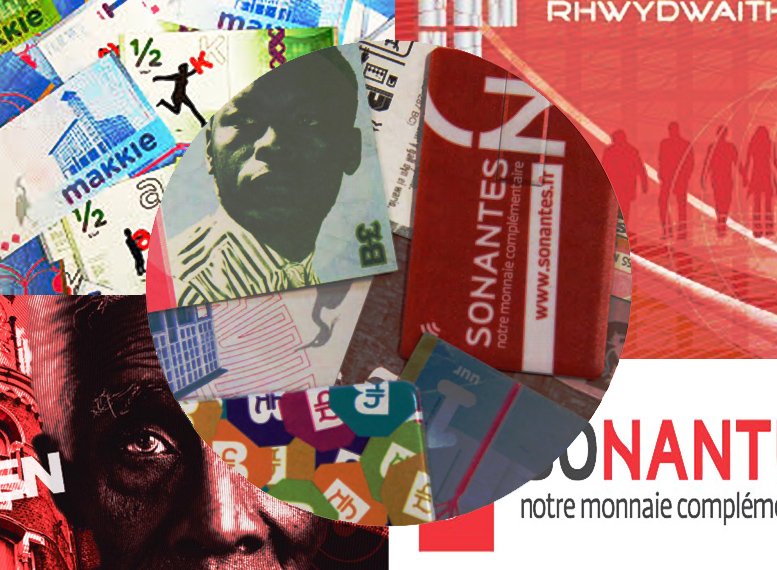The economic crisis has led many to rethink how money is managed. In particular, there has been considerable interest in new types of money. Bitcoin is just one example of these, though there are also many communities worldwide that have tried setting up their own currencies, with varying success levels. NEF is an organisation that has spent time pondering this, and in 2015 it produced an interesting report on this matter. NEF used results from pilot schemes carried out by Community Currencies in Action. This initiative was a project that spanned various countries that reviewed whether currencies were effective and if so, why.
There were some interesting findings of the report. It was found that both in Amsterdam (with the Makkie) and in the United Kingdom (with Spice Time Credits) successes had been achieved with regard to rebuilding social capital, as well as people gaining confidence in what they are able to do. Business currencies were starting to look interesting in Amsterdam (TradeQoin) and Nantes (SoNantes). These were found to be providing interest free credit but not in the corporate world. It was found that somewhere between these two models, a currency such as the Brixton Pound provide the chance of interfaces between local authorities and business, which drives identity and place into connections. The environment was also able to be supported by these currencies, as identified in Belgium where E-portemonnee was helping to facilitate sustainable choices for people. All of the projects were found to have relevance for future currency innovations.
Infographic by Maria FonsecaThe report demonstrated four very interesting outcomes.
Democratisation of services and organisations
The first of these relates to the democratisation of services and organisations. Of note, it was discovered that the use of a community currency could be beneficial in power shifting within organisations to increase the emphasis on people and their communities. Spice Time Credits was one currency where this was achieved. The use of this currency led to better and increased collaboration between organisations and better use of resources in 74 per cent of cases. In fact many suggested they were able to offer better services with less resources. There was also an increased motivation among volunteers because they felt more valued.
Supporting the SME Economy
The second outcome was with regard to the way that the SME economy is supported. Three of the currencies, namely the TradeQoin, SoNantes and the Brixton Pound were seen to do this. This had many benefits. One was that creating new business networks led to more trade. This was trade that was considered to have been unlikely to have happened without the network in place. Increased customer loyalty was another important benefit. With the Brixton Pound, 70 per cent of the staff at Lambeth Council that were taking Brixton Pounds as part of their salary were using new businesses as a result of using this currency. They would spend often or more. The currency had also facilitated with finding new ways for businesses and users to transact with one another, such as pay by text, among others.
Countering inequality and social exclusion
Many of the currencies were found to counter inequality and social exclusion. This was a third outcome. It was noted that currencies help people to improve their social networks. In the case of Makkie, 50 per cent of users had made new friends, and more had expanded their range of people that they know in terms of demographics and culture. The currencies were found in some cases to improve quality of life as well. Forty five percent of people using Spice Time credits felt healthier as a result of doing so, and 19 per cent reported a lower need to go to the doctor or use social care services. The currencies were also found to create a greater attachment to place.
Addressing environmental impacts
The fourth outcome was that in some ways currencies were found to address environmental impacts. However, the only currency reporting results in this area was the e-portemonnee. Use of this was found to be a good incentive for people to engage in tasks that are environmentally friendly. They were much more likely to take part in an awareness raising campaign. In Limburg where the currency was introduced there was also found to be a link between the use of the e-portemonnee and a reduction in the amount of waste produced. However, the report authors do point out that these environmental findings may not be entirely attributable to the currency. Nonetheless the outcomes of creating new currencies appear to be excellent at first glance.

Paula Newton is a business writer, editor and management consultant with extensive experience writing and consulting for both start-ups and long established companies. She has ten years management and leadership experience gained at BSkyB in London and Viva Travel Guides in Quito, Ecuador, giving her a depth of insight into innovation in international business. With an MBA from the University of Hull and many years of experience running her own business consultancy, Paula’s background allows her to connect with a diverse range of clients, including cutting edge technology and web-based start-ups but also multinationals in need of assistance. Paula has played a defining role in shaping organizational strategy for a wide range of different organizations, including for-profit, NGOs and charities. Paula has also served on the Board of Directors for the South American Explorers Club in Quito, Ecuador.










